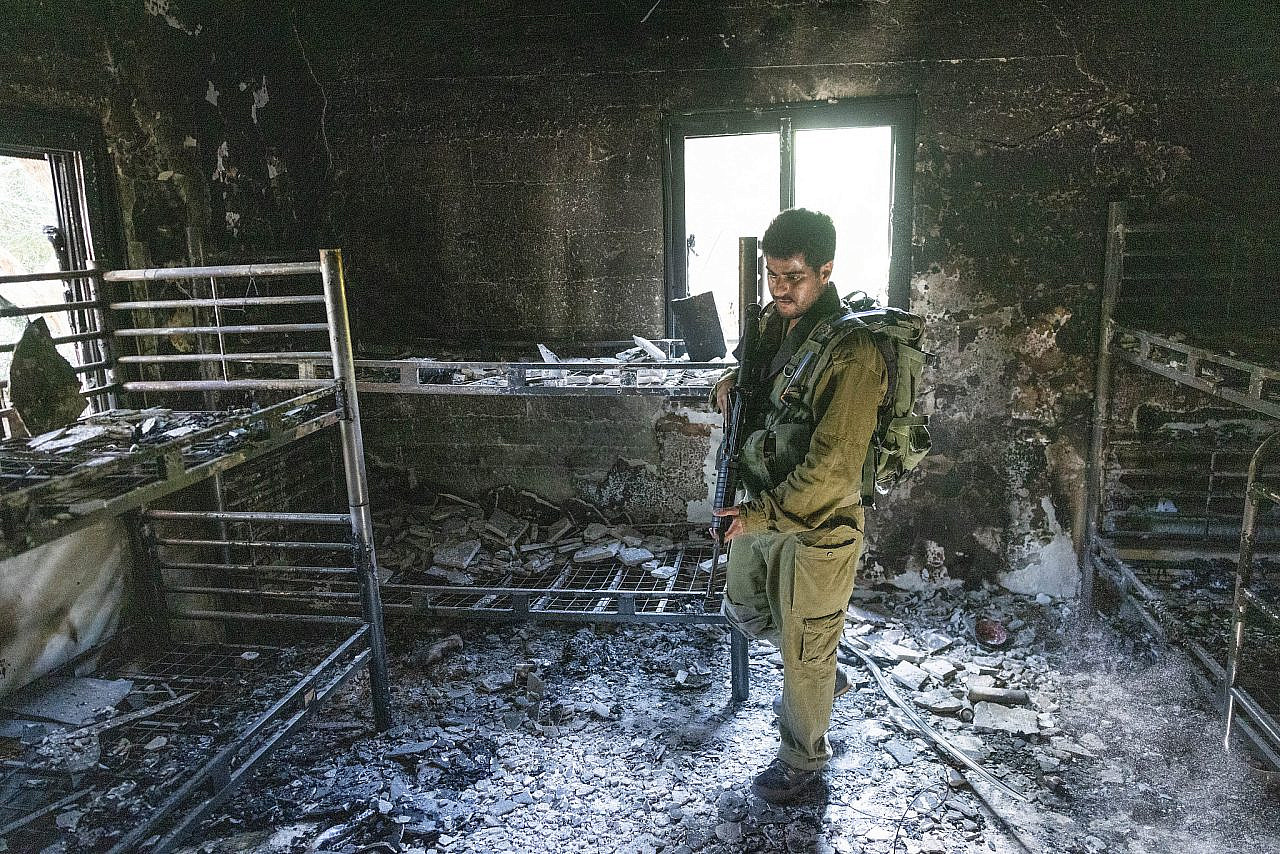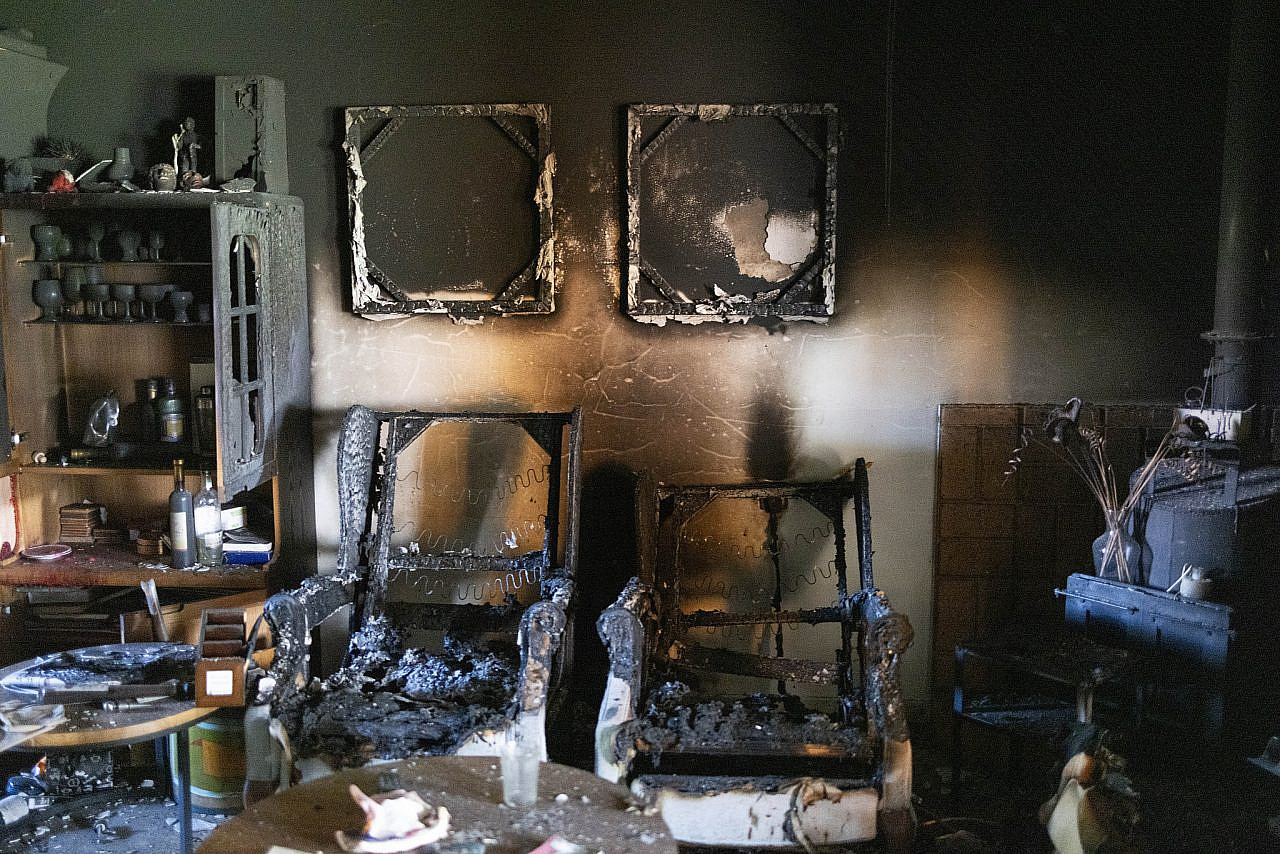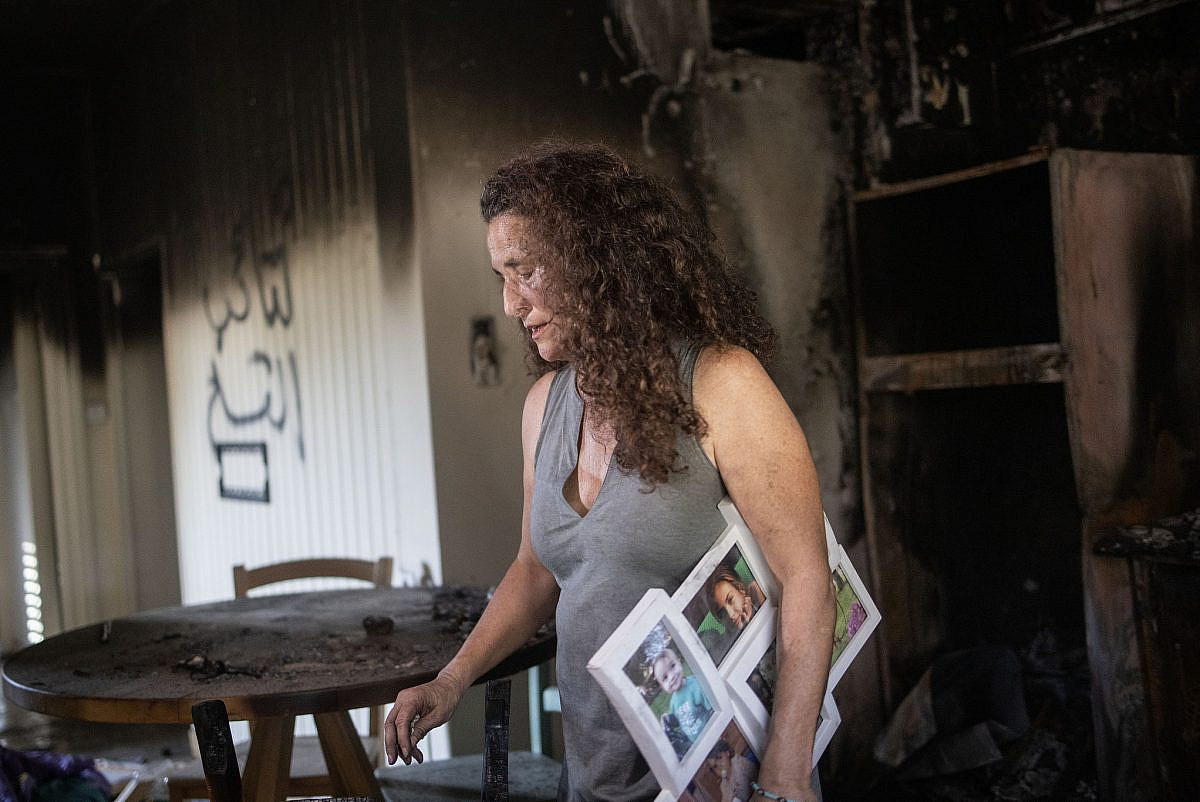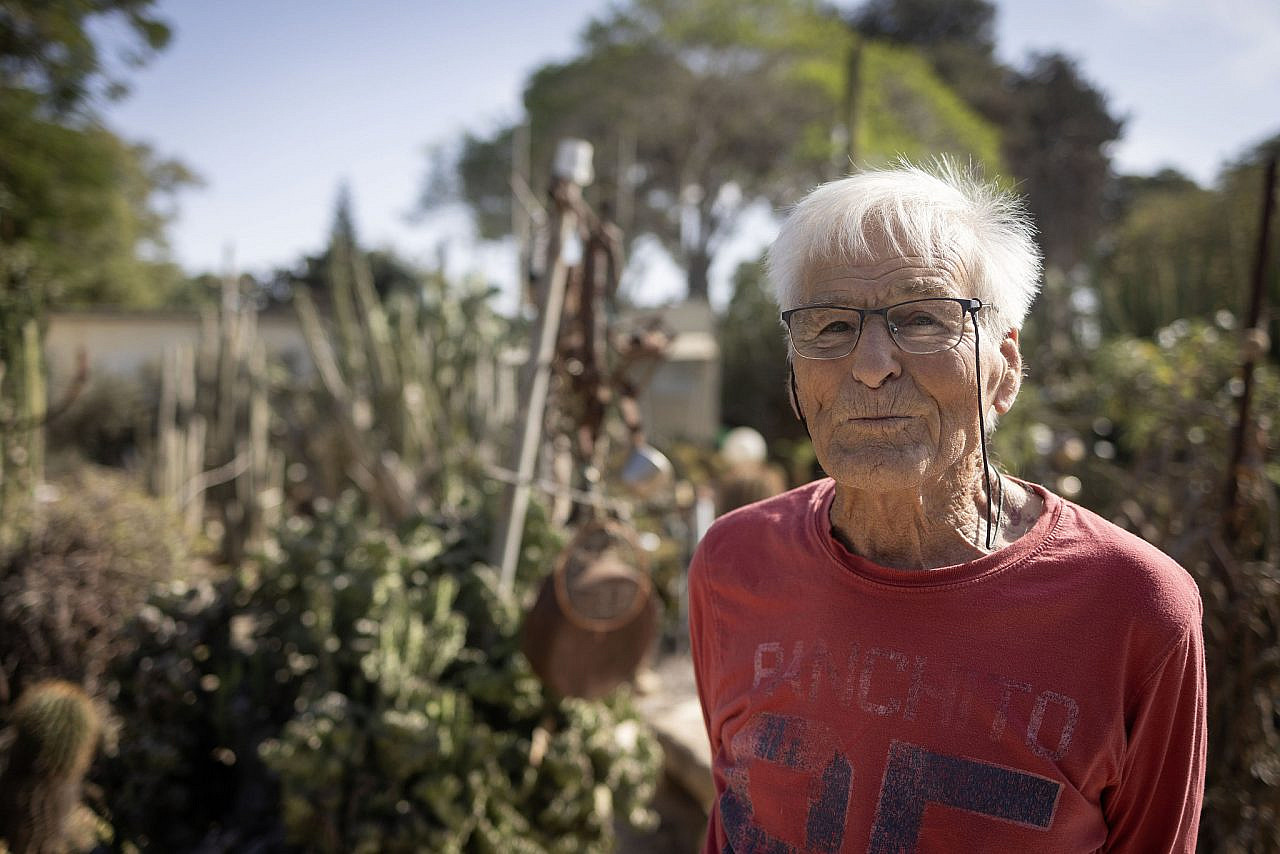At the entrance to the dining hall in Nir Oz, a small Israeli kibbutz near the Gaza Strip, a notice about a protest in Be’er Sheva against police brutality, scheduled for Oct. 7, is still pinned up. Below it are affixed a few stickers from Israeli peace groups that must have been printed two decades ago: “It won’t end until we talk,” from the Bereaved Families Forum; “Leave the [occupied] territories, return to ourselves,” from Peace Now; and “A year of true peace.”
A few meters inside the hall, a glass door is pierced with bullet holes. A shattered clock lies on the floor by the wall, stopped at a quarter to eleven. Pieces of bread and soft drinks are laid out on the tables, and the cash register at the payment counter is empty. A month ago, Nir Oz was home to some 400 residents; on Oct. 7, about a quarter of them were killed or kidnapped.
Unlike other southern communities where only some areas were attacked, burned, or looted that day, a tour of Nir Oz reveals that almost every household suffered damage. It appears that Hamas militants and others who entered through the breached fence that encages the Gaza Strip managed to reach every corner of the community. According to testimonies, the Israeli military arrived only about two hours after the attackers left with hostages.
Hadas Calderon’s two children, 16-year-old Sahar and 12-year-old Erez, along with her ex-partner Ofer, were kidnapped to Gaza. Carmela, her 80-year-old mother, was murdered alongside her 13-year-old niece, Noa.
On Oct. 30, Calderon returned to the kibbutz for the first time since the attack. She visited her home, which had been completely burned, as well as the home of her ex-partner, from where he and their two children were abducted. With tears in her eyes, she moved between the rooms, searching for any remaining items, photographs, or toys, and shared her heavy emotions.

“I want the whole world to imagine how, on a Saturday morning, a little child was ruthlessly kidnapped in his pajamas and taken to Gaza, disappeared, and we have no information,” Calderon said, her voice trembling with both sorrow and anger as she threw her son’s fur doll to the floor. “He had these dolls to help him feel safe, but no one protected my children.”
She opened the window in the bomb shelter where her family hid. “They ran away from here and went to hide in the bushes. That was the last message I received from Erez. He wrote to me, ‘Be calm, I love you.’ Even in fear, he worried about me, the sweet boy. I miss him.
“We must reach an agreement and bring them back home immediately,” she continued. “There needs to be a ceasefire, a prisoner exchange — whatever it takes for them to return home. They need me and my embrace. I want to smell them, kiss them, promise them that this holocaust will never repeat itself. I feel so guilty that we lived here.”
In the living room, “Kataib al-Qassam [Al-Qassam Brigades],” the name of Hamas’ military wing, is scribbled on the wall in Arabic. The kitchen was entirely burned. “I am just trying to imagine the horror they went through. I was alone in the safe room for eight hours. I said goodbye to the world, I sent them a farewell message, ‘I love you.’”
On the floor of one of the rooms are airplanes that Ofer made for their children. “He invested so much of himself into making them and gave them to the kids,” she said.

Calderon confessed that she was initially reluctant to expose herself to the media. “I didn’t want to come back. But the world needs to see and know. I have a duty, a mission to bring them back.”
Next to Calderon’s home is the home of Oded and Yocheved Lifshitz, who were both kidnapped to Gaza; Yocheved was freed last week after Hamas agreed to release two hostages on “humanitarian grounds.” Their house, too, was completely burned down, but the couple’s cactus garden still stands around the house.
Ran Pauker, 86, also returned to his home on Monday for the first time since that fateful day. He did not witness the massacre himself: on the morning of Oct. 7, he was staying with his wife in Sderot. His first concern upon returning was for the community’s botanical garden that had been under his care, and the many cacti scattered between his home and the burnt house of the Lifshitz family.
“My parents were among the founders of Nahariya, and in 1957 we came here to establish the kibbutz,” he said. “My brother Gideon was killed on Saturday, along with his wife Orna. He bled to death for 12 hours in his shelter because there was no one to come and save him.”
To the surprise of the many reporters on the scene, Pauker also shared his views on the political context that enabled the disaster. “I’m deeply disturbed that for years we haven’t resolved the situation with the Palestinians, because they don’t want to, and we don’t want to. Until both sides come to the conclusion that we need to live together in peace, each in their own corner, there won’t be peace, even if they eliminate Hamas right now. In 20-30 years, there will be another war.
“First and foremost, we need to sort out the matter of the hostages, to swap them with the terrorists that are here [referring to Palestinian prisoners held by Israel, not all of whom were involved in militant activities]; it’s just explosive material to hold them in prison. After that, we need to sit down and negotiate a peace agreement,” Pauker said. As he spoke, the sounds of explosions from Israel’s airstrikes on Gaza could be heard in the background.
“I have good friends from across the border [in Gaza], but I can’t meet them, and they can’t meet me. They used to come to my house. I spoke to them on Saturday. They are human beings. They have bad leaders, like us. We can throw away the leaders on both sides and make peace in a matter of minutes.”
This article was first published in Hebrew on Local Call. Read it here.




